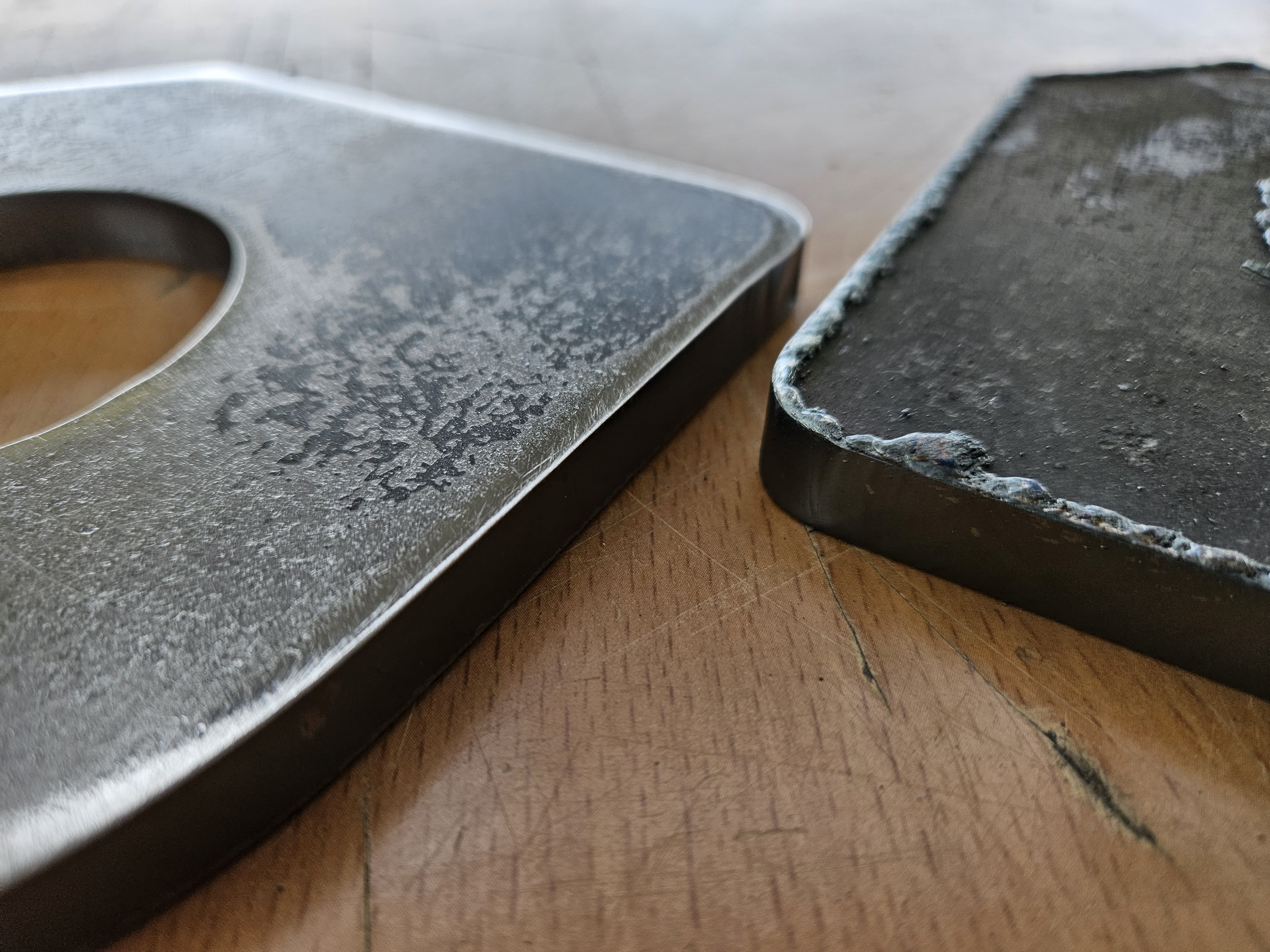
One of the common things I hear is "That is how we do it" and more so at older companies.
While established processes can be good to hold on to firmly for quality there are some cases where its less helpful. We all have things in our day to day lives that have changed over time. I will admit some were not for the better. While I am glad I don't have wash clothing over a stone in a creek I wish I could still easily get shoes repaired. One small bit of damage and you have to trash shoes and its not much better with TV repair shops and on and on.
Finishing is an area that has benefited from the changes over time. From improvements to abrasives to advancements in machines in general. Where you had few options in the past other than hand tools and wood fixtures things have changed. Even the basic through feed machine has evolved past the loud single sanding belt monster that threw parts across the room. You can now get machines that are much quieter and far safer than in the past. You can process very small parts with out fixtures and that was a dream in the not so distant past. Hell you can even get a robot to pick up a single part and finish it any way you want.
The issue is when someone says "that is how we have always done it". When you ask why it often turns into meeting nearly every person in the building. You will just go person to person following the chain of "I was told to do it this way by someone". In the end you are likely to end up with no answer and no clear source. This is often when people start to open up to new ideas when they have been forced to ask the why question. The reality is that someone was tasked with figuring things out. This was likely with limited time and experience. But in the end it worked as is often the case in that type of situation. At that moment in time they did they best they could with what was available to them. I would just about guarantee a contractor building houses 100 years ago would have welcomed a modern nail gun with open arms. But when they were figuring out how to build a wood frame house nail guns were not a thing. You have to resolve things with what is available to you at that moment in time. So an old way is not better or worse by default than a newer way. A person solving a finishing issue today has a much larger pool of resources to take from vs 40 or 50 years ago. So the solution you would come to today is likely to be much different than in the past.
The key is to be open to the change. This is not a blanket statement saying all old ways are bad. Rather its a statement to be open to changes and don't just say we have always done it this way. Not being open to new ideas or another perspective is not helpful. Being willing to look at any process and ask why are we doing it this way is a good starting point. Not every idea can be a good idea but even a bad idea can trigger a good one. Talking about things and looking at what you are doing while being open to new ways or ideas is key. When you need to control costs this can go a long way.
Death by a thousand cuts is a real thing. At the very end of your process say you need to spend 30 min hand sanding a part. You buy better sanders and hire more people but its still 30 min to finish each. This is where death by a thousand cuts kicks in. You have to ask the why question and follow the parts back upstream. It would be far easier to just say this is how we have always done things. But if you go back upstream you will find that the metal stock is stored on a rack that is leaving deep scratches, The carts you move the parts on are causing scratches, The parts come off the shear and bang into each other and on and on. Resolving or improving these issues will cut the finishing time needed at the end of the process. But you have to be open to looking at the problem and not stopping with "that's how we have always done it".
When you run into one of these situations ask why. Then follow the chain back to try and find the source. Worst case you will get to say hello to most of the people in the building. Be open to new ideas and don't let "Thats how have always done it" become a brick wall.
Topics deburring machinemetal deburring machineSmall Part Deburringgraining sheet metalmetal finishingpolishingRobotics